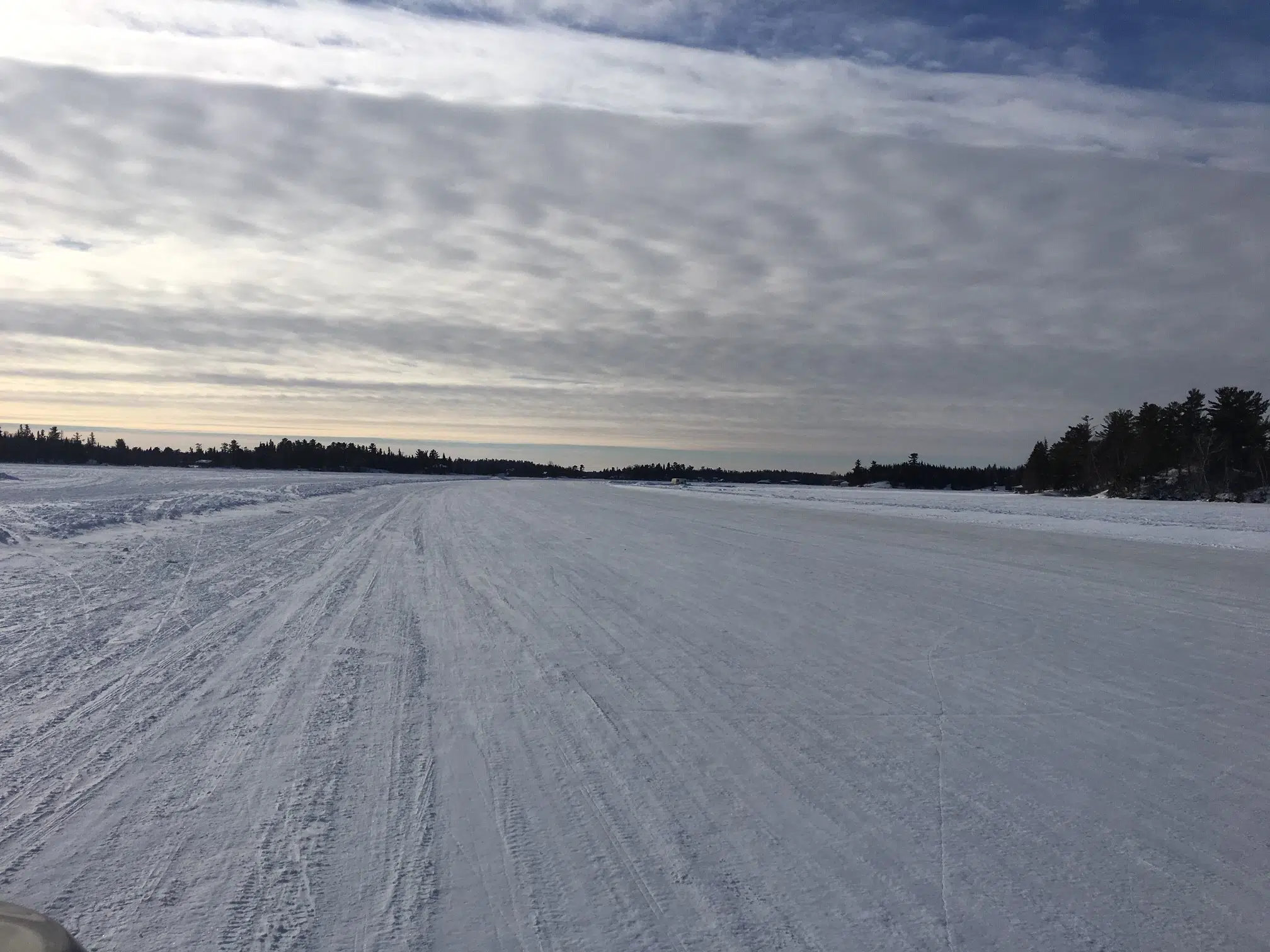
Lake of the Woods
Ice fishing is one of the many winter pastimes in Northwestern Ontario and the Ontario Conservation Officers Association is urging anglers to use caution when heading out this winter.
Warm temperatures have caused many lakes to freeze slowly or not at all in many parts of Ontario.
“The lack of ice coupled with heavy snowfall recently has caused many lakes to have excessive slush,” says OCOA President Derek Hebner, “this snowfall and slush will slow further ice formation and cause travelling on the ice to become very difficult until colder temperatures arrive. I encourage anglers who are planning a fishing excursion to check the ice conditions often, plan ahead and be prepared. By following some simple safety measures, it could save your life or the life of someone else.”
The OCOA is advising you to utilize the following safety measures:
- Check ice thickness and conditions frequently
- Clear ice should be a minimum of 10cm (4”) for walking and ice fishing,
12cm (5”) for one snowmobile or ATV, 20-30cm (8-12”) for a car or small
pickup, 30-38cm (12-15”) for a medium truck (source: Lifesaving Society) - Fish with a buddy
- Be prepared for an emergency – wear ice picks or a floater/survival suit,
and have a whistle and cell phone on hand - Let someone know where you will be and when you plan to return. This
should include where your vehicle will be parked, what route you plan to
take and any stops you plan to make - Stay off rivers and away from locks, where ice is less stable. Ice
conditions in areas of moving water or spring-fed lakes can be unsafe at
any time, ensure the ice is safe before venturing out.
“For many anglers, ice fishing can be the highlight of their fishing year,” said Hebner, “but if the ice conditions are not safe, we suggest holding off on heading out until ice conditions improve. We wish all Ontarians a safe winter season.”

January 23 Ice Levels – Screen Capture via Government of Canada
According to the Government of Canada, outside of Black Bay, Lake Superior is not safe to be ice fishing on as the ice is still new.
The Lake of the Woods Control Board is also reminding everyone to be cautious when travelling near or on the ice. Weather this winter has been mild and ice conditions may not be the same or as safe as in previous winters. It is always best to be extra cautious when near or on the ice, especially when there are fluctuations in temperatures and changes in water flows or levels.
